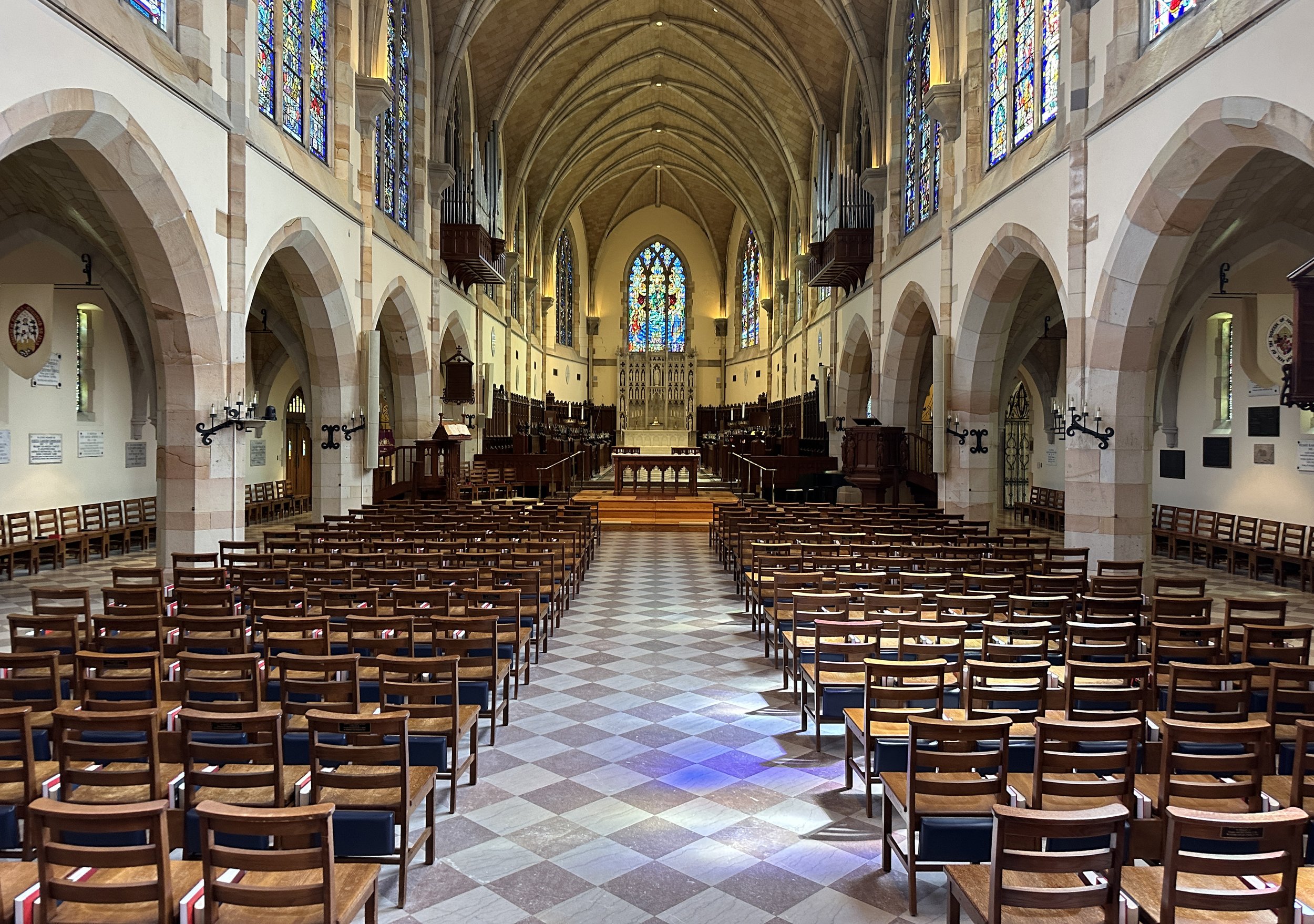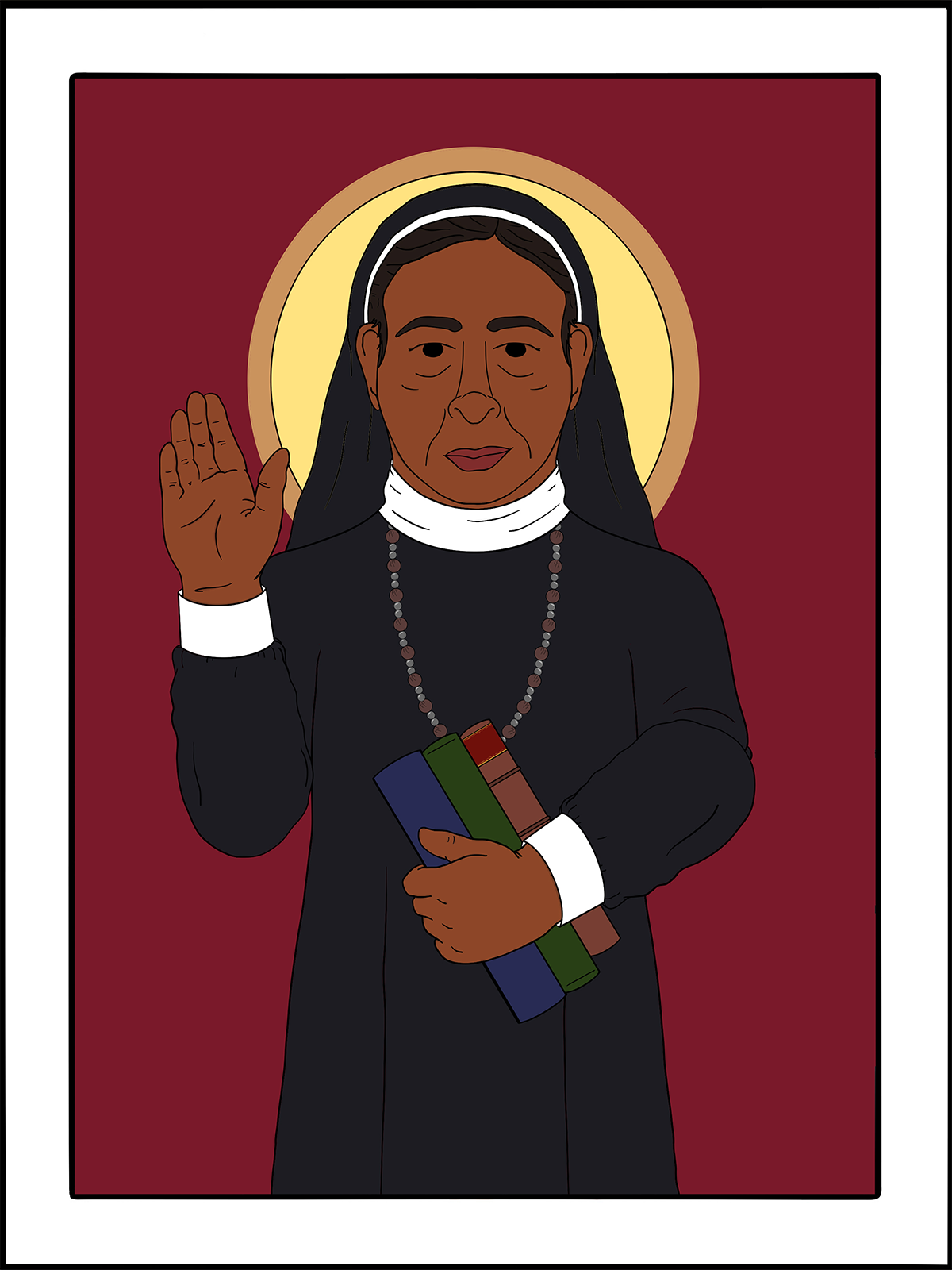
September 24
Anna Ellison Butler Alexander
Deaconess and Teacher, 1947
art by Rev. Kirsten Kohr of Geneva, Ohio Loving God, who called Anna Alexander as a deaconess in your church: Grant us the wisdom to teach the gospel of Christ to whomever we meet, by word and by example, that all may come to the enlightenment that you intend for your people; through Jesus Christ, our Teacher and Savior. Amen.
Anna Ellison Butler Alexander was the youngest of 11 children, born to recently emancipated slaves Aleck and Daphne Alexander on Butler Plantation in MacIntosh County, Georgia, in 1865. Her parents were devout Episcopalians, and they also instilled in their children a love of learning. Anna became a teacher, and eventually the only African American to be consecrated as a deaconess in the Episcopal Church.
Anna dedicated herself to working for the education of African American children in poor communities. First she helped to found and to run St. Cyprian’s School at St. Cyprian’s Episcopal Church in Darien, and in 1902 she founded a school at Good Shepherd Church in rural Glynn County’s Pennick community, where she taught children to read—by tradition, from the Book of Common Prayer and the Bible—in a one-room schoolhouse. The school was later expanded to two rooms with a loft where Anna lived.
In 1907, she was consecrated as a deaconess by Bishop C. K. Nelson. Deaconess Alexander served in difficult times, however. The Diocese of Georgia segregated its congregations in 1907 and African American congregations were not invited to another diocesan convention until 1947. However, her witness—wearing the distinctive dress of a deaconess, traveling by foot from Brunswick through Darien to Pennick, showing care and love for all whom she met—represents the best in Christian witness.
The poor white residents of Glynn County also trusted Deaconess Alexander. When the Depression hit the rural poor, she became the agent for government and private aid, and Good Shepherd Mission served as the distribution center. Locals remember that no one ever questioned her as she served the needs of both races in a segregated South. Strictly religious, strictly business, Deaconess Alexander commanded respect. White men took off their hats when she passed.
Deaconess Alexander wrote, “I am to see everyone gets what they need … some folk don’t need help now and I know who they are. The old people and the children, they need the most … when I tell some they can’t get help just now … that others come first, they get mad, a little, but I don’t pay no mind and soon they forget to be mad.”
She ministered in Pennick for 53 years, leaving a legacy of love and devotion that is still felt in Glynn County.
Excerpted directly from “Lesser Feasts and Fasts 2022,” p. 430-431.

